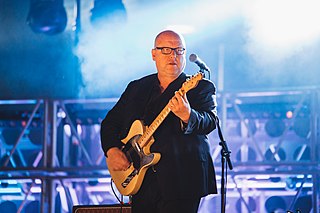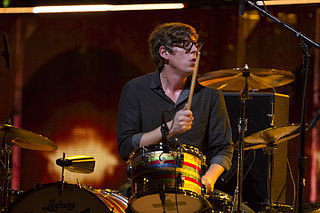A Quote by Billie Holiday
People don't understand the kind of fight it takes to record what you want to record the way you want to record it.
Quote Topics
Related Quotes
People want to be the first with the record, they want to be the first to know which songs are on the record, all that kind of stuff. So I like to just stall them a bit. Personally, I love the idea of an album that's completely new, that no one's heard any free downloads, any pre-record releases, all that kind of stuff, and nothing's been played on the radio. Totally virgin, you know, a sealed record. That's my ideal, but it's very hard to get anybody else to agree to do that.
I really like to think of each record as its own thing. So, for sure, but I hate the idea of being stuck in anything. Like I want to do a Hawkwind-style record too, or a noise rock record or a hardcore record. Why not, you know? I would just not want to keep heading too far in one direction, without pulling off and going the other way.
I really like to think of each record as its own thing. So, for sure, but I hate the idea of being stuck in anything. Like I want to do a Hawkwind-style record too, or a noise rock record or a hardcore record. Why not, you know? I would just not want to keep heading too far in one direction, without pulling off and going the other way. That is what is fun for me.
I was too shy, I think, to sing publicly. It takes a particular kind of person. And when I was young, I was not that person. In the first instance, when a record company said to me, do you want to try and make your record, my first reaction was, no, I'm not worthy - I couldn't possibly, and so on and so forth.
I won't necessarily make new music because when you make a record there are these great expectations on the side of the record company who are going to produce your record, promoters that are going to do your shows. They want you to do interviews, they want you to play shows. I mean, they want it to be a campaign.
I feel less and less like that every year, and I guess maybe even more so with every new record that I put out. I just think, as the years go by, it's harder and harder to really find a reason to be annoyed that you made something that people want to continuously talk about. Certainly there are contexts in which the record can be discussed which will get me on the defensive and make me want to put some kind of calibration or some kind of context on what the record means in relation to my career as a whole.



































